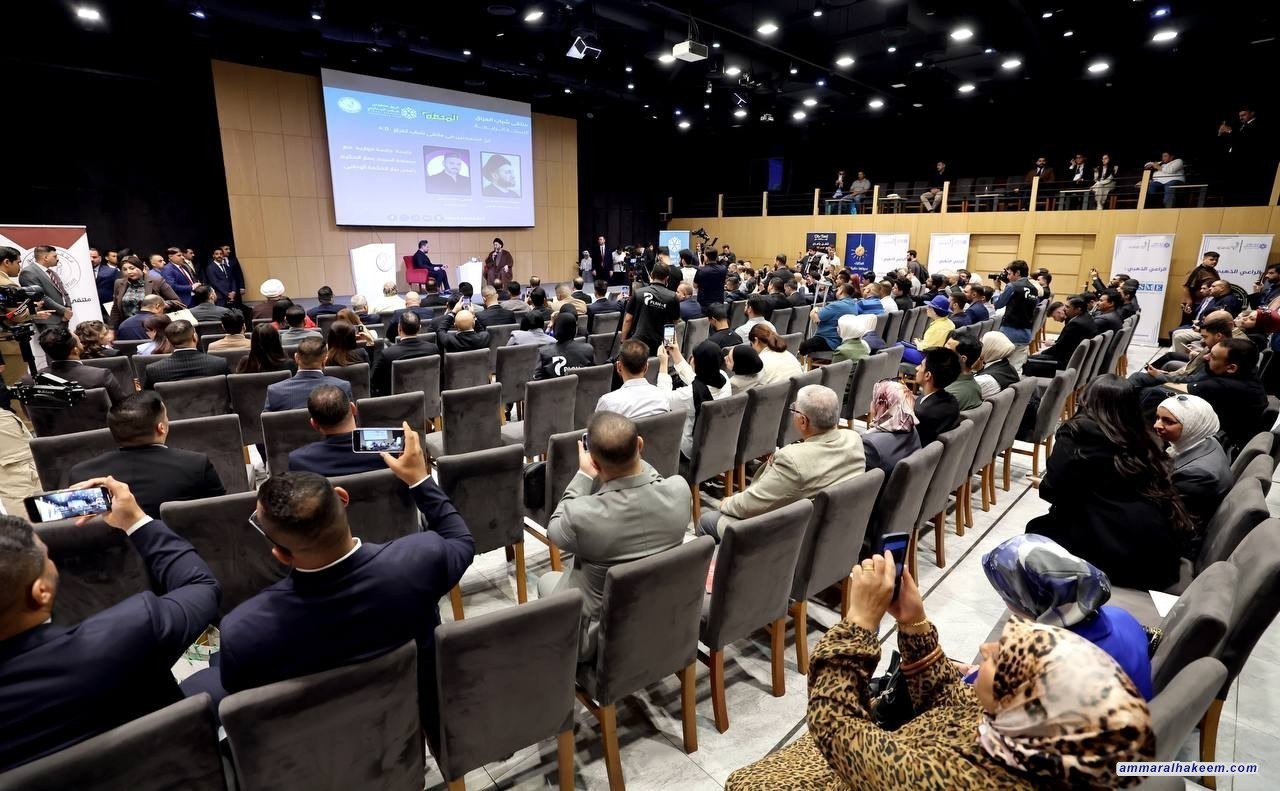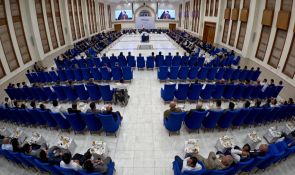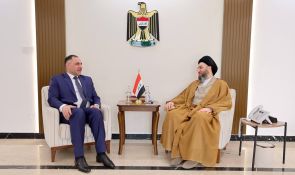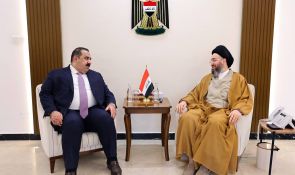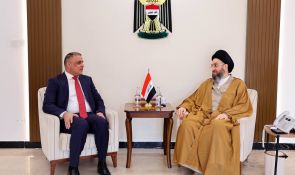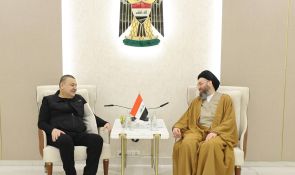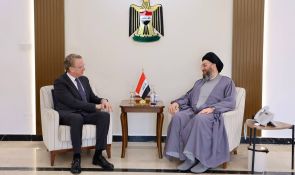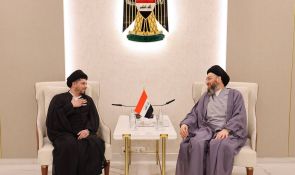Sayyid Al-Hakeem: Al-Sudani is the man for this Stage, Sadrist Movement Remains Part of the Political Reality Even Without Government and Parliamentary Involvement
During the 4th Iraq Youth Forum, His Eminence Sayyid Ammar Al-Hakeem, leader of the National State Powers Alliance, stated that the Sadrist Movement is a significant part of society, and it’s difficult to claim they are outside the political process. While they are not part of the government or parliament, they are still present in the political scene and are partners in the political process. His Eminence emphasized the importance of unity, uniting ranks, and working on common goals, and that differences should not prevent communication and collaboration.
H.E. clarified that the Al-Hikma National Movement did not participate in the government because it lacked enough seats, even though it had sufficient votes. The National State Powers Alliance was also offered to join the government, but they declined. However, they are part of the Coordination Framework and the State Administration Coalition, supporting the government based on its seriousness in delivering services.
H.E. stated that Al-Sudani is the right person for the current phase due to his commitment to development, reconstruction, and service delivery, which are priorities at this stage. Al-Sudani's administrative experience has contributed to service provision, and his field visits are commendable in advancing projects and moving away from stagnation. H.E. also affirmed that the Palestinian cause is deeply rooted in Arab and Islamic conscience, with Iraq taking a leading stance on this issue at the religious, governmental, and popular levels. H.E. added that the Israeli entity’s goal isn’t merely Hamas, but to target the Palestinian cause itself, attempting to portray it as a matter of a landless people. This is evident in the targeting of the West Bank and the explicit statements of some israeli officials. There is a unanimous government and political stance that Iraq’s role in the regional crisis should be political, media-oriented, and humanitarian. H.E. praised the efforts of the religious sanctuaries, the government, and the Iraqi people in supporting Gaza and Lebanon, mentioning that the Al-Hikma National Movement also contributed to relief efforts, adding to the ongoing support.
H.E. pointed out the relationship between war and negotiation opportunities, explaining that war often sets the stage for better negotiation terms. H.E. noted that israel has not achieved most of its declared goals since the war began and commended the steadfastness of southern Lebanon, where the resistance defeated the israeli army and inflicted casualties. This resilience will help balance the situation with the enemy and force them to cease the war and engage in negotiations. H.E. also highlighted the impact of the U.S. presidential election on American support for israel.
H.E. expressed support for emerging political powers, emphasizing the importance of their integration, either with each other or with groups aligned with their objectives. H.E. noted that the National State Powers Alliance has demonstrated its support and reliance on the powers within its framework.

